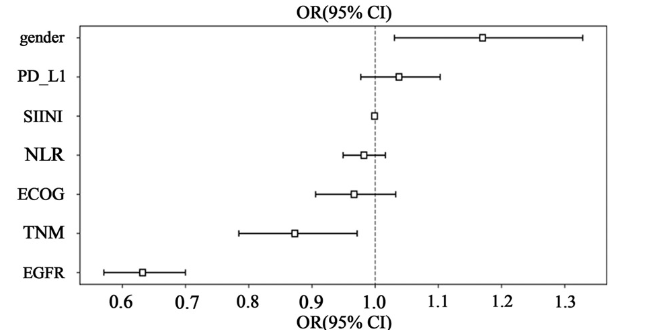Deep learning and inflammatory markers predict early response to immunotherapy in unresectable NSCLC: A multicenter study
DOI:
https://doi.org/10.17305/bb.2025.12324Keywords:
Artificial intelligence, deep learning, non-small cell lung cancer , NSCLC, inflammatory parameter, immunotherapyAbstract
Immune checkpoint inhibitors (ICIs) demonstrate substantial interpatient variability in clinical efficacy for unresectable non-small cell lung cancer (NSCLC), underscoring the unmet need for noninvasive biomarkers to predict early therapeutic responses and improve survival outcomes. To address this, we developed a CT-based deep learning model integrated with the systemic immune-inflammatory-nutritional index (SIINI) for early prediction of ICI response. In a retrospective multicenter study of 265 patients treated with ICIs (incorporating chest CT and laboratory data), the cohort was divided into training (70%), internal validation (30%), and external validation sets. The combined model—leveraging DenseNet121-derived deep radiomic features alongside SIINI—achieved strong predictive performance, with AUCs of 0.865 (95% CI: 0.7709–0.9595) in the internal validation cohort and 0.823 (95% CI: 0.6627–0.9827) in the external validation cohort. Gradient-weighted class activation mapping (Grad-CAM) highlighted key CT regions contributing to model predictions, enhancing interpretability for clinical application. These findings highlight the potential of integrating deep learning with inflammatory biomarkers to support personalized ICI therapy in unresectable NSCLC. Future directions include incorporating multi-omics biomarkers, expanding multicenter validation, and increasing sample sizes to further improve predictive accuracy and facilitate clinical translation.
Citations
Downloads

Downloads
Additional Files
Published
Issue
Section
Categories
License
Copyright (c) 2025 Lei Yuan, Qi Wang, Fei Sun, Hongcan Shi

This work is licensed under a Creative Commons Attribution 4.0 International License.









